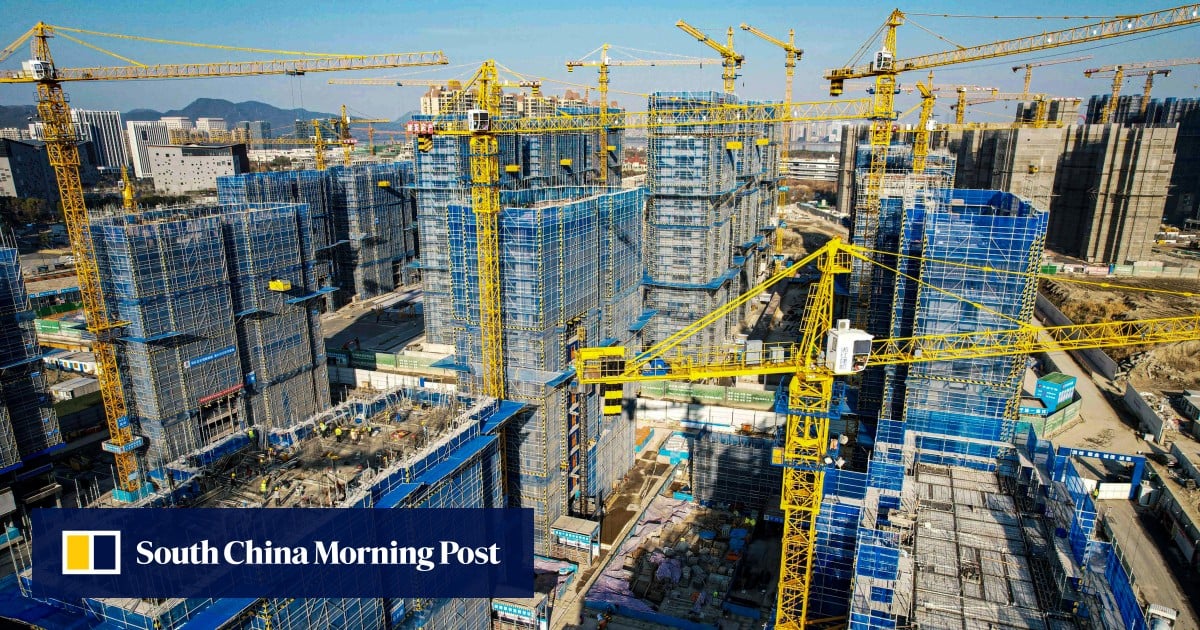
18 Mar China property investment seen stabilising as analysts count on financing lifeline, demand to spur recovery
Property investments and sales in mainland China continue on a downwards trajectory despite Beijing’s efforts to inject liquidity and boost demand, but the rate of decline has slowed in a sign that the market is starting to stabilise, according to analysts.
In January and February, total property investment declined 9 per cent year on year to 1.18 trillion yuan (US$164.5 billion), according to data released on Monday by the National Bureau of Statistics (NBS). Investment in residential property fell 9.7 per cent to 882.3 billion yuan.
Overall investment slid 9.6 per cent in 2023, NBS said.
“The overall risk [in China’s property market] is manageable because the decline in investment is narrowing, which is a sign that the supply side is stabilising,” said Yan Yuejin, director of Shanghai-based E-house China Research and Development Institute.

The competitive landscape of the property industry is changing, with companies that have healthier financials taking part in more projects than their smaller peers – another positive sign that the troubled market is improving, Yan said.
“With [banks] offering stronger financing support, property investment will likely gain more momentum later,” he said.
Property sales by floor area fell 20.5 per cent year on year in January and February, compared with a decline of 8.5 per cent in all of 2023, according to NBS. Meanwhile, sales value fell by 29.3 per cent year on year in the first two months, compared with a 2023 slide of 6.5 per cent.
The year-on-year decline in January and February sales is due in part to a high base last year, after the removal of Covid-19 restrictions released pent-up demand, pushing sales to record highs, said Chen Wenjing, director of market research at China Index Academy, a real estate research firm.
A longer Lunar New Year holiday and an increase in travel also slowed sales of new homes this year, she noted.
China’s economy rebounds at start of 2024, but property remains a ‘big problem’
China’s economy rebounds at start of 2024, but property remains a ‘big problem’
Additional data from the China Index Academy showed that total sales of second-hand homes in 25 major cities in China declined by 13.1 per cent in January and February by floor area, “significantly lower” than the rate of decline in the new home market in the same period, said Chen.
“Demand is recovering steadily overall, and the second-hand market is expected to maintain its momentum as we hope to see more demand being generated from homeowners wanting to trade-in and upgrade their homes,” she said.
China’s home prices continued to decline for the ninth month in February on a month on month basis, according to data released on Friday by NBS. Second-hand home prices dropped by 0.8 per cent month on month in first-tier cities, and 0.6 per cent in second- and third-tier cities over the same period.
“Most property-related activity worsened broadly and meaningfully in year-on-year terms in January-February, reflecting either unfavourable base effects or sequential weakness,” analysts at Goldman Sachs said in a note.
“Property activity has probably undershot underlying demographic demand amid the ongoing property downturn, but an increasing proportion of demand has been met by the large supply of vacant existing homes.”
